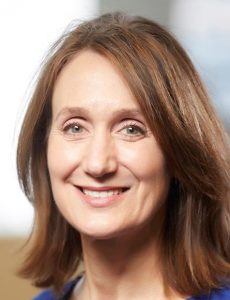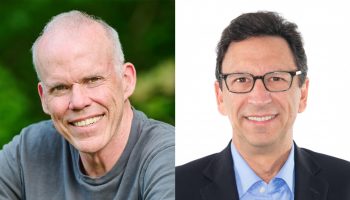The COVID-19 pandemic is helping Elizabeth Cousens make her case.

With an economic collapse, rising death tolls and breakdowns in supply chains, the absence of a certain necessity has come into focus: global cooperation.
The need can’t be ignored any longer, she said. But will citizens rise to the challenge? The jury’s still out.
“There are too many issues on the global agenda that require global cooperation, and I think the real challenge for all of us is whether we can summon the kind of resolve to recognize that,” said Cousens, president and CEO of the United Nations Foundation.
Cousens’ lecture, “This is Not a Test: Collective Action in the Age of Covid,” will open the Week Nine Chautauqua Lecture Series theme, “The Future We Want, The World We Need: Collective Action for Tomorrow’s Challenges,” in partnership with the United Nations Foundation. Her lecture will air at 10:45 a.m. EDT Monday, Aug. 24, on the CHQ Assembly Video Platform.
Cousens has been at the forefront of global policymaking and innovation for over 20 years. From 2012 to 2014, she served as the U.S. Ambassador to the U.N. Economic and Social Council and Alternate Representative to the U.N. General Assembly. Cousens joined the foundation in 2015, starting as its deputy chief executive officer.
It wasn’t until January 2020 that Cousens stepped into her role as the U.N. Foundation’s president and CEO, yet she still managed to raise almost $200 million for the U.N. Foundation’s COVID-19 Solidarity Response Fund, which benefits the World Health Organization.
Cousens said she is eager to pull from her experiences to “exchange views and ideas about the turning point we are in as a country and as a world.”
“It doesn’t take a leap of imagination to realize what an unprecedented moment we are in right now,” Cousens said. “We are in it in terms of our collective health, we are in it in terms of the future of our democracy and we are in it in terms of our ability to work together at scale on issues that are analogous to this (pandemic), like climate change or inequality.”
Countries cooperate when they are presented with two things: a set of common interests and goals they can’t accomplish as easily or efficiently on their own, according to Cousens.
When COVID-19 is the crisis in question, both boxes are checked — instantaneously.
“You look at a challenge like a global health crisis of the kind we are in, and you easily realize we cannot solve it without working together and recognizing the degree we are mutually dependent, mutually vulnerable and mutually capable of helping each other climb out of it,” she said.
More importantly, Cousens said, “we aren’t beating this (pandemic) anywhere if we don’t beat it everywhere,” so there is an exigency for partnership, especially across borders.
“Some of those borders are internal borders; you look at the challenges we are facing as a country, just trying to figure out how to enable a country to recover, or you have a patchwork of different plans and approaches across states and cities — that alone is a challenge,” she said. “But the pandemic isn’t the only issue that confronts us with it.”
Decisive moments are nothing new; Cousens said they appear in nearly every international issue from global warming to disparities in access to education. But the pandemic, in its “unprecedented severity,” has fostered a “recurring and deep belief”: The choices people make as individuals, whether that be as citizens, employees, or members of a community, can impact the “global course we end up on.”
“I hope (Chautauquans walk away) with a deep sense of the consequence of the time we are in,” Cousens said, “(and) a deep sense of their own ability to impact the outcome. Some of that is about voting, some of that is about the choices you make as an individual in your own behavior.”
Individual choices and decisions matter disproportionately in the United States, a country Cousens believes has a profound impact on the decisions made by the world around it. But it’s not as daunting as it sounds. In fact, she said this is a time to feel energized by potential, the potential to impact, “very decisively, the fate of our world.”
“This is not an insurmountable crisis,” Cousens said. “We actually know a lot of the steps that we need to take and that we need our government to make — the challenge is to organize ourselves to do it. That’s the kind of challenge we should be able to rise to.”
This program is made possible by Week Nine Program Sponsor Erie Insurance and the Oliver and Mary Langenberg Lectureship Fund.




